Tempting to blame the narcissist; after all, they are the Trojan Horse. The problem is that 1 Peter 5:8 reminds us that we are to be sober-minded and watchful because our adversary, the devil, prowls around like a roaring lion seeking someone to devour. So today, I want to talk to you about the seven demonic doors that can be opened in your life through this narcissistic relationship and how to slam them shut in the mighty name of Jesus.
Door number one is suspicion.
When someone you should be able to count on, trust in, and rely on betrays you, it hits the core. It leads you to think, “Well if I can’t trust my parents or partner, who can I trust?” You begin to view others through the lens of suspicion. Look, I get it, you’re tainted. But I want to encourage you not to allow the enemy to use a spirit of suspicion to destroy the possibility of any healthy future relationships. This doesn’t mean you override your God-given discernment and trust everyone—that would be foolish. Rather, allow God to show you who you can and can’t trust by leaning on Him and waiting to see what fruit they produce.
Number two is confusion.
If there is one certain quality that narcissists develop within their victims, it’s confusion. Your desire to resolve conflict and grow in a relationship is met instead with an onslaught of underhanded accusations and backhanded belittlement.
It’s enough to leave you bewildered, wondering how they’re just not understanding what you’re saying. Well, it’s not that they don’t understand; it’s that they don’t care. And that’s confusing because you’re confusing some of their fake, self-serving interactions with genuine interest in the relationship. My friend, God is not the author of confusion. Believe in His promises and respond promptly to His commands, and confusion will loosen its grip on you.
Number three is an identity crisis.
Whether it’s listening to their damaging words or just spending all of your focus on meeting their narcissistic needs, narcissistic relationships are a sure-fire way to live below your potential. Over the years, I’ve encountered many narcissistic survivors who say, “I don’t even know who I am.” If you’re not grounded in Christ, they can wreak havoc on your self-esteem. So what’s the solution? Turn your focus to what God says about you despite what the narcissist says.
Whether you believe God’s word or not, immerse yourself in scriptures like Psalm 139:1, 13-16, and Ephesians 2:10 until it begins to drown out all of those narcissistic lies. Don’t fool yourself though, my friend; this will be a battle as the enemy will want to pull you back into that old toxic thinking. Keep fighting, my friend.
Number three opens the door to number four, and that’s codependency.
Codependency is an unhealthy attachment and reliance on others to get your needs met. It’s like you can’t be okay unless they’re okay with you. In codependent relationships, you rely on each other instead of God.
As romantic as that may sound in movies, it is highly destructive in healthy relationships. Satan is a master at getting you to look to others for your needs and then calling it love. Codependents are classic mood mind monitors; they pride themselves on feeling others’ feelings.
My friend, this is not a superpower; this is a demonic distortion of what healthy interdependent relationships should look like. If you are struggling with codependency, please know that you’re not alone. It is such a prevalent problem, even in the body of Christ. That’s why I created my Conquering Codependency Biblically online course. I’ll go ahead and include a link in the description below.
Number five is trauma bonding.
Trauma bonding is when you, as the victim, develop a deep sense of affection, empathy, and sympathy for your abuser. This form of bonding isn’t positive. Like codependency, it’s the devil’s counterfeit for healthy interdependent relationships.
A trauma-bonded person can actually see their abuser’s actions as love. The enemy is hard at work in this dynamic as it plays on our intrinsic need for attachment and validation.
But there is hope because if you are in Christ, there is no devil in hell or narcissistic person on earth who is more powerful than our God. Allow Him to break that bond by reforming your attachment to Him and to Him alone. You may also benefit from professional help.
We’ve connected with Faithful Counseling to help you find the right counselor for you. I’ll include a link in the description below. If you click that link, you’ll not only receive 10% off your first month’s counseling, but they’ll also pair you with the right counselor for your situation.
Number six is maladaptive behavior.
It begs to reason that if a narcissist has maladaptive behaviors, over time, you can learn to respond with equally poor, albeit different, types of relationship skills. If you’ve chosen to stay with a narcissist and are completely submitted to the lordship of Jesus Christ, my friend, you will develop unhealthy behaviors to cope with. But coping and thriving are not the same.
It’s not uncommon for partners or children of narcissistic abusers to develop survival behaviors ranging from substance abuse to victim-like thinking. You may even find yourself being manipulative, using guilt as a weapon, or adopting unhealthy forms of avoidance. Granted, it’s impossible to have healthy relationships when one of the two people is toxic. But I want you to be careful not to fall into the trap of exchanging evil for evil.
Number seven is narcissism.
If you’re not careful, being in a narcissistic relationship for a considerable amount of time can actually make you susceptible to becoming narcissistic yourself. And don’t hear what I’m not saying: this isn’t a guarantee. But the devil is sly in this way, as he gets you to focus all of your attention on learning about narcissism and staying stuck in a self-pitying, victim mindset.
He keeps you stuck in these patterns of focusing on yourself and what the damage is to your life instead of focusing on growing in the Lord. Now your life becomes all about you. You are either now a covert victim or an overt power-taker: “Oh look, they ruined my life,” or “I’m getting my power back.” Both of these mindsets leave God out of the equation.
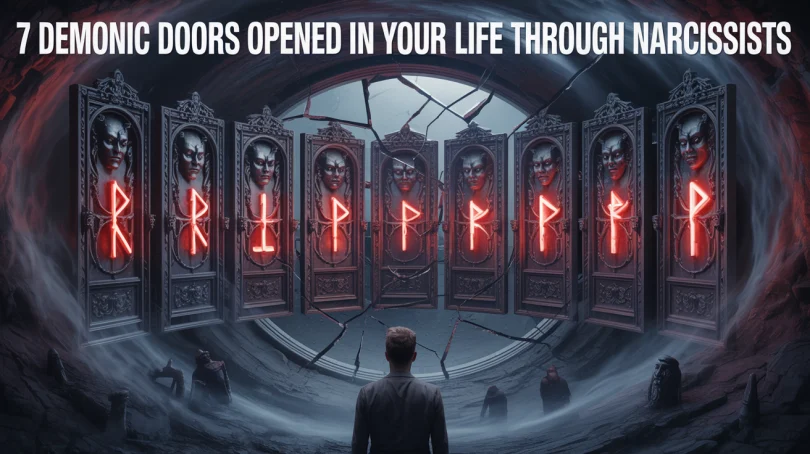
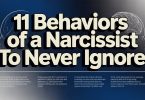
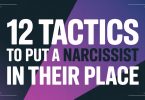

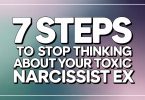

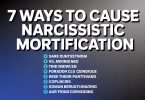
Leave a Comment